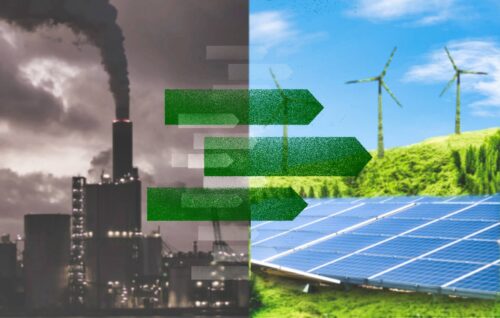In the quest for a sustainable and environmentally conscious future, the transition from fossil fuels to green energy sources has become a paramount focus. The escalating concerns over climate change, air pollution, and depleting fossil fuel reserves have catalyzed a global shift towards renewable and clean energy alternatives. This article explores the stark differences between green energy and fossil fuels and delves into the promising future that awaits posterity as we embrace a cleaner, more sustainable energy landscape.
The Green Energy Revolution:
Green energy, also known as renewable energy, is derived from naturally occurring and replenishable sources. Solar, wind, hydro, geothermal, and biomass are leading the charge in this revolution, providing cleaner alternatives to the carbon-intensive energy produced by burning fossil fuels. Unlike finite fossil fuel reserves, renewable energy sources harness the power of nature, ensuring a constant and sustainable supply for generations to come.
Reducing Carbon Footprint:
One of the primary advantages of green energy is its significantly lower carbon footprint compared to fossil fuels. Burning fossil fuels releases vast amounts of carbon dioxide and other greenhouse gases, contributing to the greenhouse effect and climate change. In contrast, green energy technologies generate electricity without emitting harmful pollutants, thus mitigating the impact on the environment and human health.
The Economic Impact:
As nations increasingly invest in green energy infrastructure, the economic landscape is undergoing a transformation. The green energy sector has become a driving force for job creation and economic growth. According to the International Renewable Energy Agency (IRENA), the renewable energy sector employed over 12 million people globally in 2022, and this number is expected to rise exponentially as the transition to green energy accelerates.
Energy Independence and Security:
Fossil fuels often lead to geopolitical tensions as nations vie for control over oil and gas reserves. The transition to green energy fosters energy independence by diversifying energy sources, reducing reliance on a limited number of countries for fossil fuel imports. This shift enhances national security, diminishes geopolitical conflicts, and ensures a more stable energy supply.
Challenges and Solutions:
While the green energy revolution holds immense promise, it is not without challenges. The intermittent nature of some renewable sources, such as solar and wind, necessitates advancements in energy storage technologies. Innovations in battery storage and smart grid systems are crucial to overcoming these challenges, ensuring a reliable and consistent energy supply.
The Future for Posterity:
As we navigate the transition to green energy, the future for posterity appears bright. Investments in research and development are driving technological breakthroughs, making renewable energy sources more efficient and cost-effective. With continued advancements, we can expect widespread adoption of green energy solutions, reducing our collective carbon footprint and securing a sustainable future for generations to come.
Conclusion:
The shift from fossil fuels to green energy is a pivotal moment in human history, driven by a collective commitment to environmental stewardship and a sustainable future. The transition is not only an environmental imperative but also an economic opportunity, creating jobs, fostering innovation, and enhancing energy security. As we navigate the challenges ahead, the promise of a cleaner, greener future for posterity remains within reach, fueled by the limitless power of renewable energy sources.


